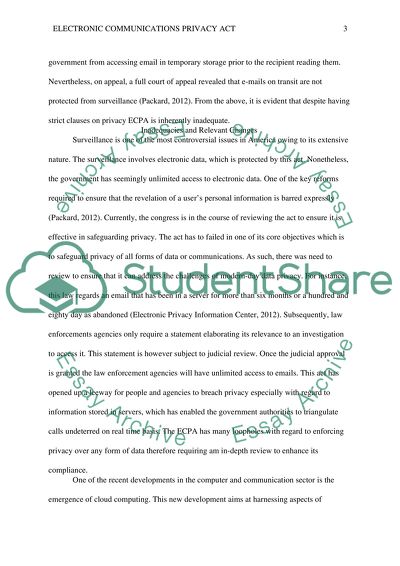Cite this document
(“Electronic Communications Privacy Act Essay Example | Topics and Well Written Essays - 1250 words”, n.d.)
Electronic Communications Privacy Act Essay Example | Topics and Well Written Essays - 1250 words. Retrieved from https://studentshare.org/information-technology/1654973-electronic-communications-privacy-act
Electronic Communications Privacy Act Essay Example | Topics and Well Written Essays - 1250 words. Retrieved from https://studentshare.org/information-technology/1654973-electronic-communications-privacy-act
(Electronic Communications Privacy Act Essay Example | Topics and Well Written Essays - 1250 Words)
Electronic Communications Privacy Act Essay Example | Topics and Well Written Essays - 1250 Words. https://studentshare.org/information-technology/1654973-electronic-communications-privacy-act.
Electronic Communications Privacy Act Essay Example | Topics and Well Written Essays - 1250 Words. https://studentshare.org/information-technology/1654973-electronic-communications-privacy-act.
“Electronic Communications Privacy Act Essay Example | Topics and Well Written Essays - 1250 Words”, n.d. https://studentshare.org/information-technology/1654973-electronic-communications-privacy-act.


